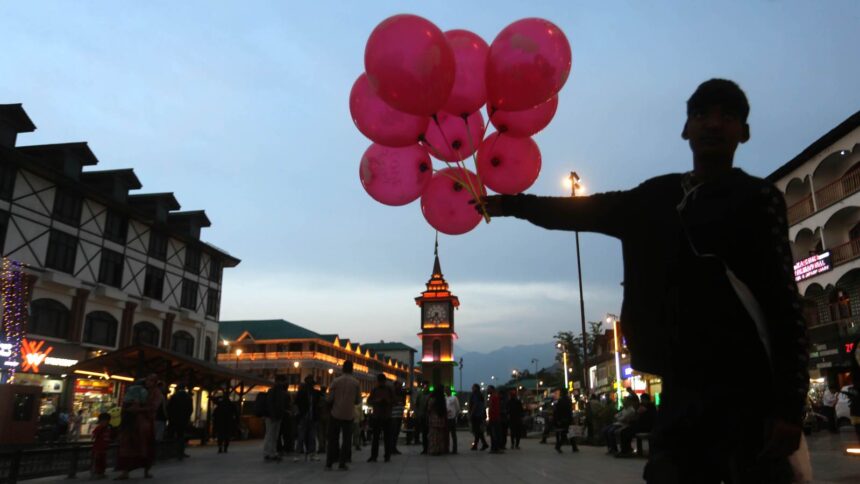All was relatively quiet on India’s north-western front Saturday night after three days of cross-border shelling and drone attacks in the border areas of Jammu and Kashmir, Punjab and Rajasthan. This comes after a ceasefire to put an end to days of military action between India and Pakistan.
In ’s Udhampur Saturday evening, where some last evening, blazing guns fell silent soon after, with officials reporting no more violations since.
However, although there had been no sounds of sirens and announcements of blackouts since, there remained uneasy calm in the area, with residents voluntarily keeping their lights switched off through the night.
Nearly 22 people — including six security forces personnel – have been killed and over 40 others injured in Jammu province during intense cross border shelling and drone attacks by Pakistan since May 7, when India conducted what it claimed was “measured, non-escalatory, proportionate, and responsible” strikes on terrorist infrastructure in areas in Pakistan-occupied Kashmir and Pakistan in in the aftermath of the killing of 26 people in Pahalgam the month before.
In Kashmir too, peace returned to the border villages Sunday morning after three sleepless nights, with residents along the LoC who fled to safer ground now returning home, some of which have been damaged in cross-border artillery fire.
“We returned to our village last night itself,” Mushtaq Ahmad, a resident of Garkote in Uri, told . “We had left on Thursday after the intense shelling. It has been calm since last night”.
From Uri sector in Baramulla to Nogam and Tangdhar in Kupwara and Gurez in Bandipore, the borders were calm as both Indian and Pakistani troops held their fire.
“There was no fire from either side last night,” said a resident of Gurez. “People have sighed relief after the ceasefire and those who had left for other places are returning back”.
A resident of Tangdhar told The Indian Express on phone that there was no ceasefire violation in the border areas Saturday night and the people slept in their homes for the first time in four days.
“There was fear that the ceasefire may not hold,” he said. “As a result, many villagers preferred to spend the night inside the (community) bunkers”.
Meanwhile, Srinagar too saw a semblance of normality return after the sounds of explosions were heard in the Valley Saturday evening just hours after the ceasefire announcement had been made.
After the initial chaos and blackout of Saturday evening, street lights were kept on for the remainder of the night and there were no sounds of siren and explosion – for the first time in three days. Over 15 people were killed and around 100 houses and government buildings were damaged in the artillery fire in the border areas over the last week.
In Punjab too, it was a relatively quiet and peaceful night, with most districts lifting blackouts orders issued minutes after shelling resumed in the neighbouring J&K within a few hours. Although a red alert was sounded in Amritsar early Sunday morning, it was eventually lifted.
Although sounds of explosions were heard in Pathankot and Amritsar, a highly-placed official here said these were undetonated explosives being disposed of by the Indian Army, and there was no cause for concern.
By morning, power had been restored in almost all parts of the border state. Ferozepur, and Hoshiarpur, which had remained awake the previous night, remained peaceful, and it was business as usual in the joint capital of , where residents voluntarily kept their lights switched off the night before.
Similar situation prevailed in Rajasthan too, where the district administration’s lifting of red alert meant that people returned to their normal routines after the district magistrate, Tina Dabi, circulated a message of blackout being imposed in the district.
The night before, sirens sounded in the border district after some drone sightings, with the police going around the area to ask residents to close down their shops and follow blackout orders. According to officials, the drones heading towards the Uttarlai air base were eventually shot down.
However, although the sirens stopped sounding after 11.30 pm, police and district administration remained on alert mode all night, with police fearing a possible drone attack in the neighbouring Jaisalmer district.
By morning, the district administration’s message meant that the district went back to normal.








